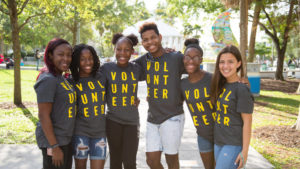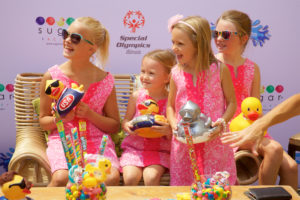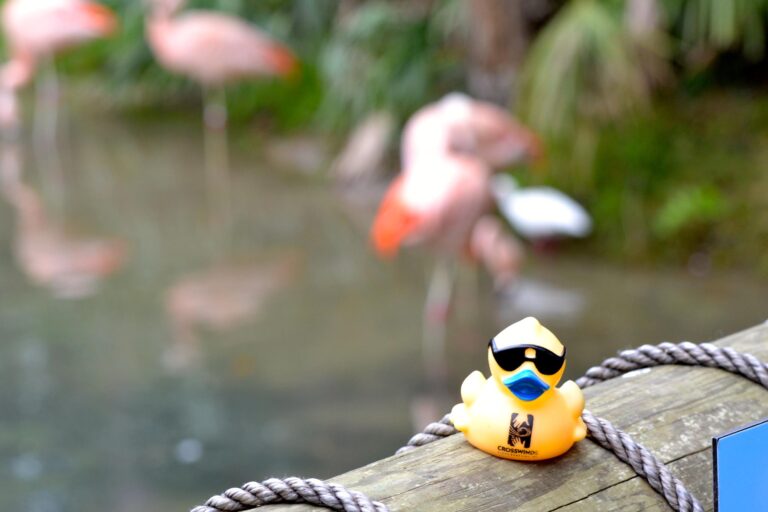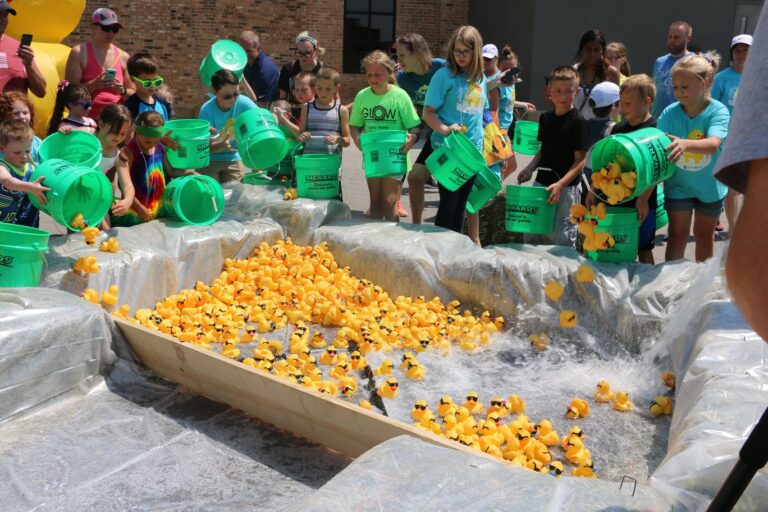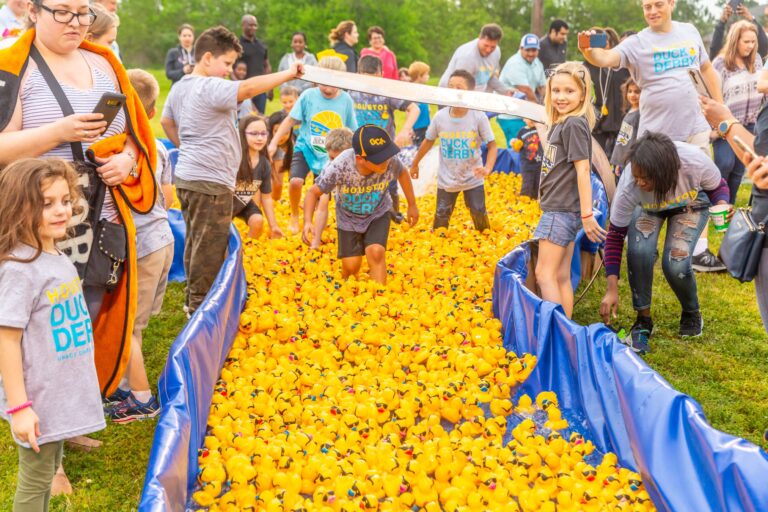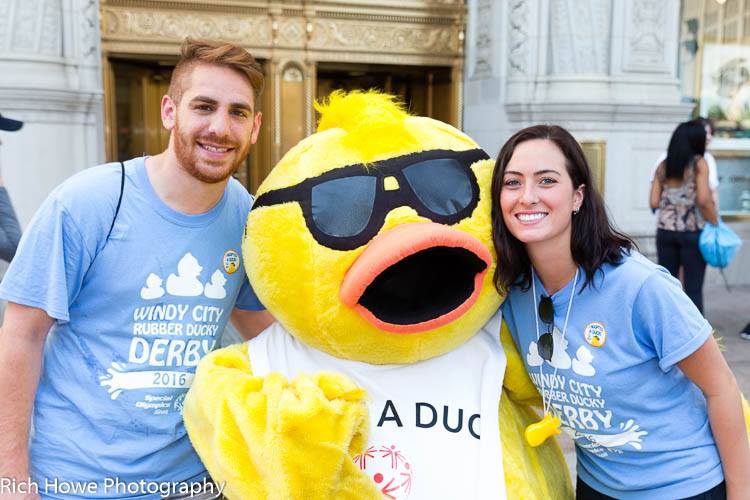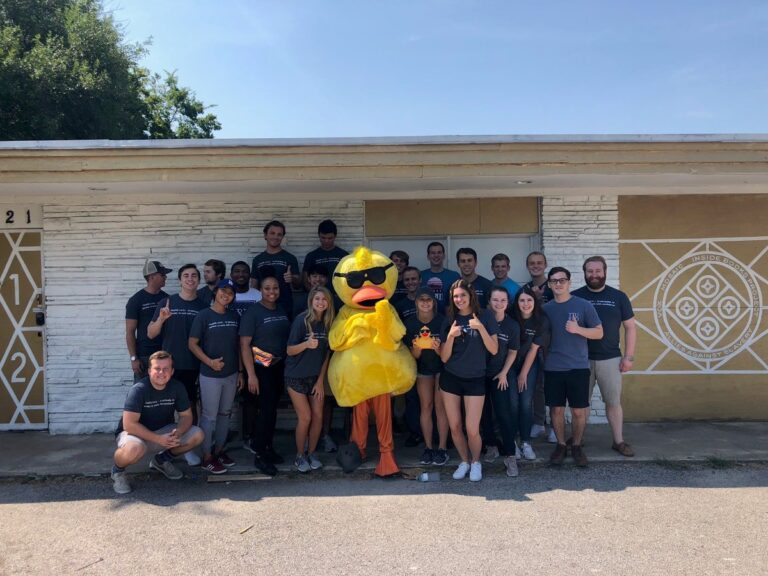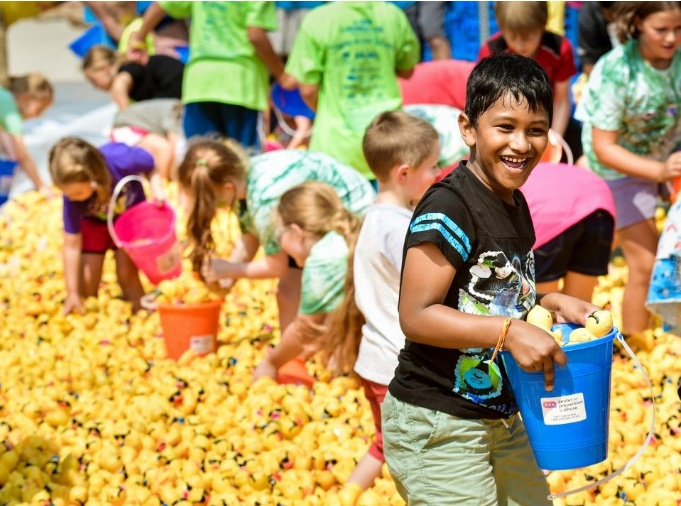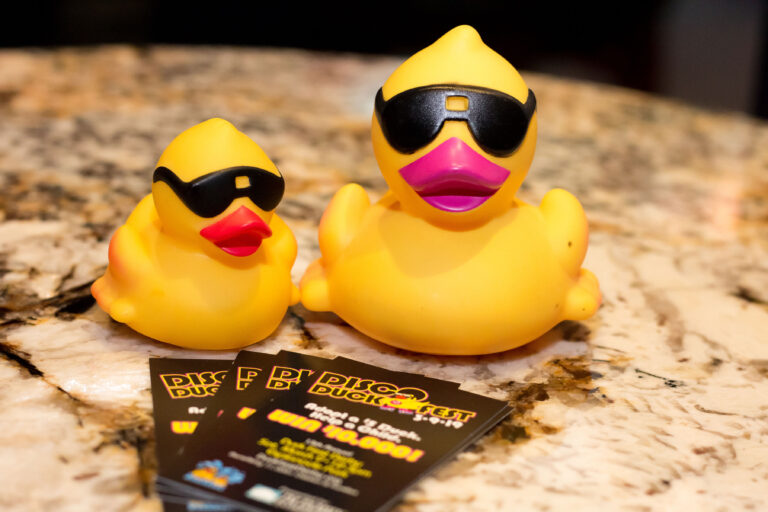With the current condition of social distancing and the inability to gather in large groups, some of our spring duck races are looking different in 2020. One racer that rose to the occasion recently was The Great Brevard Duck Race, hosted by Crosswinds Youth Services. The stay at home order happened less than 2 weeks before their race was set to take place. Head duck, Misty, didn’t want to lose the momentum of duck adoptions being halfway to their goal by postponing their race. She wanted to stick to their mission raising funds to serve at-risk youth and their families. Just as they had done the last 21 years with the duck race.
After some internal discussion and working with GAME on a new social media strategy, they decided to power through. One of their local media/news stations, streamed Facebook Live on race day to announce the winners. Up until the winners were randomly selected and announced, 9,823 ducks had been adopted and over $42,000 in revenue was raised!
Although it wasn’t the crowd filled event they’re used to having, they turned lemons into lemonade and made it work! We can’t wait to see the event they put on for 2021!
See full video here: The Great Brevard Duck Race Facebook LIVE
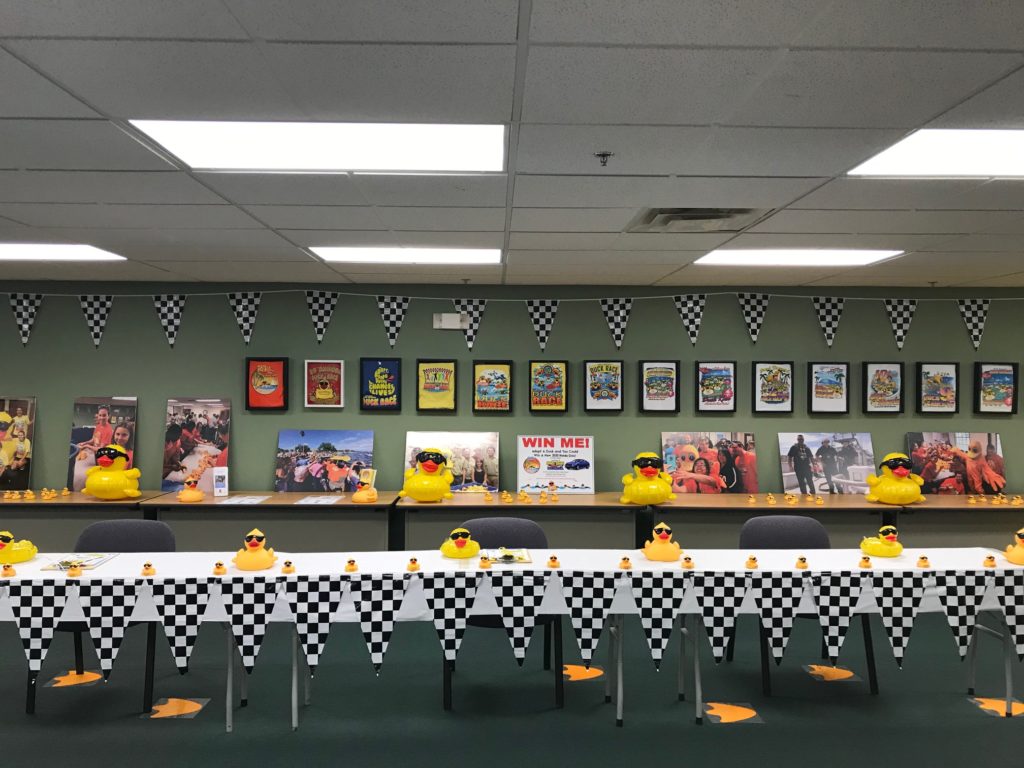
- April 8, 2020
Freestore Foodbank is going bigger than ever for their 25th Annual Rubber Duck Regatta presented by Dawn! 200,000- yes, 200,000 rubber ducks will hit the Ohio River on September 1st. Each duck purchased, can provide 15 meals for kids in the community. The first lucky duck to cross the finish line will take home a 2019 Honda CRV LX, with a chance to win $1 million! The 2nd prize winner will receive $100 from Kroger every week for a year, and five additional winners will receive $500 cash from Kemba Credit Union.
Freestore Foodbank is one of Ohio’s largest food banks serving 20 counties in Ohio, Kentucky, and Indiana. They distribute 27 million meals annually through a network of 450 community partners including food pantries, shelters, community centers and more.
Don’t miss out on the duck spectacle this Sunday, get your duck or Big Quacks (6 ducks for $25) at www.rubberduckregatta.org or at a participating Kroger until Saturday, August 31st. If you can’t make it, you don’t have to be present to win.
Buy A Duck, Feed A Child, Win A Car!
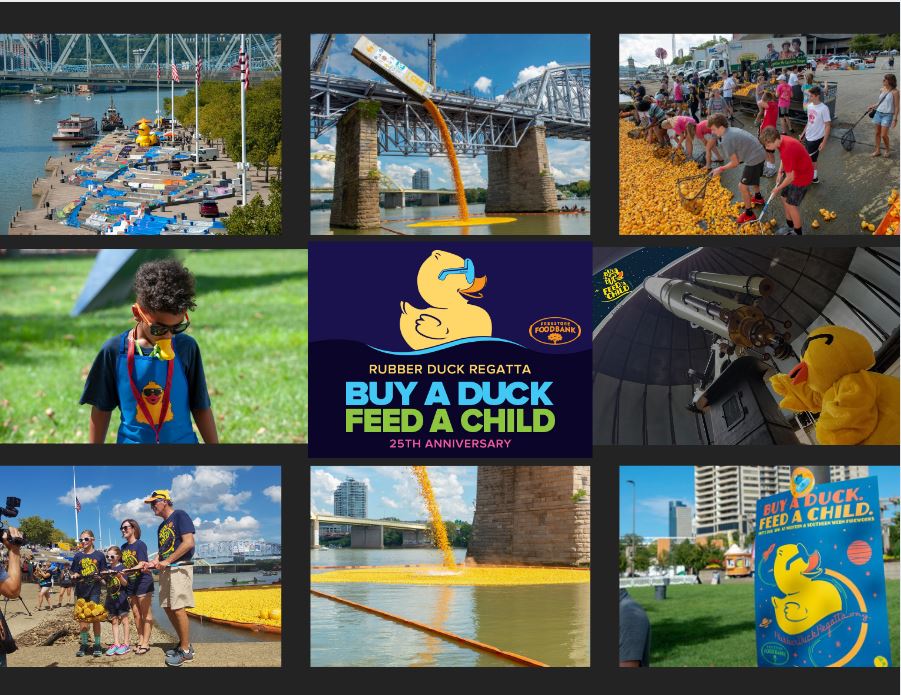
- August 29, 2019
More ducks are coming to race for the 3rd Annual Incredible Duck Race presented by the Kiwanis Club of Tampa! On Saturday, August 24th, a total of 15,000 ducks will race down Hillsborough River in front of Curtis Hixon Park. All proceeds will benefit local children’s programs and charities to provide scholarships, build a reading room in Boys & Girls Clubs, build residential accessibility ramps and more!
It’s not too late to adopt a single duck for $5 or a Flock of ducks (25 for $100) at Tampa Duck Race. The first lucky duck to cross the finish line will win $5,000 and 2nd & 3rd place will win cash prizes as well!
If you’re in the Tampa area, check out the festivities which will include family- friendly games, food, and entertainment. You don’t have to be present to win so you can still adopt a duck, help a child and enter for a chance to win cash!
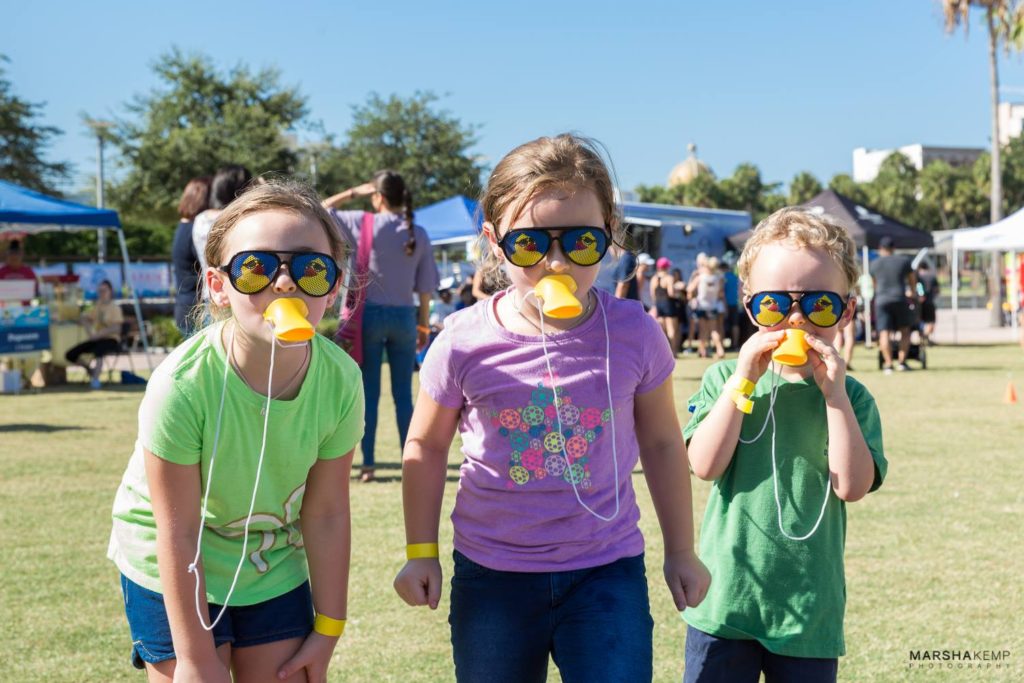
- August 22, 2019
After two weeks resting up, our ducks are back in three cities this Saturday! Both Wakefield Rotary Club and Montville Athletic Club are racing for the 1st time alongside veteran racer, Cedar Rapids Daybreak Rotary. A grand total of 20,000 ducks will race between these cities to raise money for youth and family-focused programs. If you find one in your area, be sure to check out the festivities and even adopt a duck. You never know, you could be the lucky winner of a cash prize!
1. Super Duper Duck Splash
Ducks Racing: 5,000
Organization: Wakefield Rotary Club of Wake Forest
Where: Wake Forest, NC
Who They Serve: Various local non-profits including Boys & Girls Club, Note in the Pocket, NCFC Youth and SAFEchild.
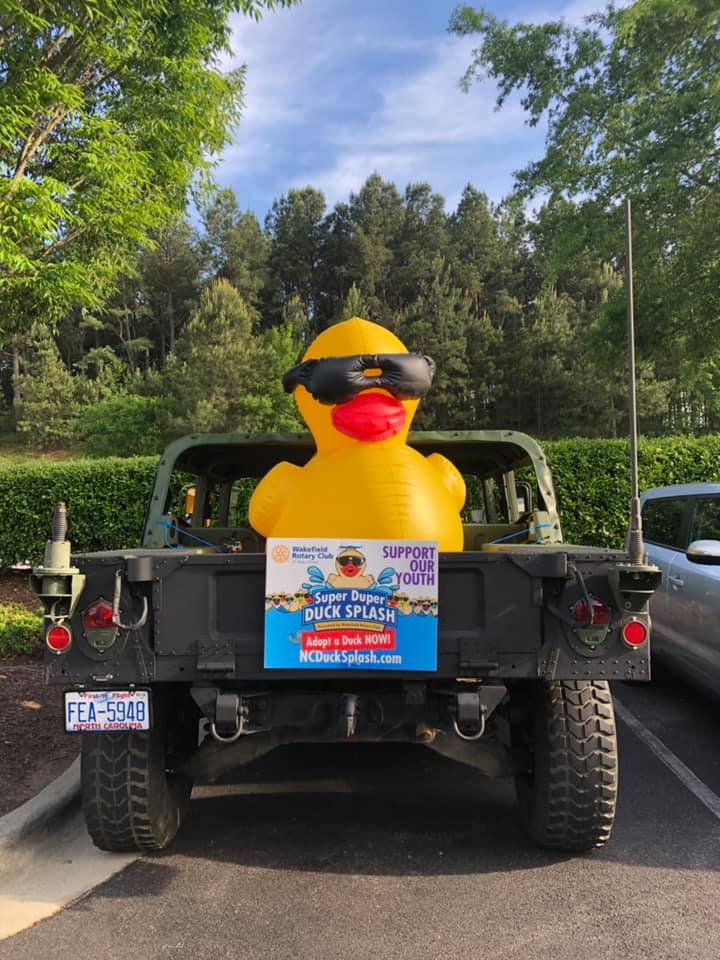
2. Broncos Lucky Duck Pluck
Ducks Racing: 5,000
Organization: Montville Athletic League
Where: Montville, NJ
Who They Serve: Montville Athletic League, an organization that provides a variety of athletic programs in Montville Township.
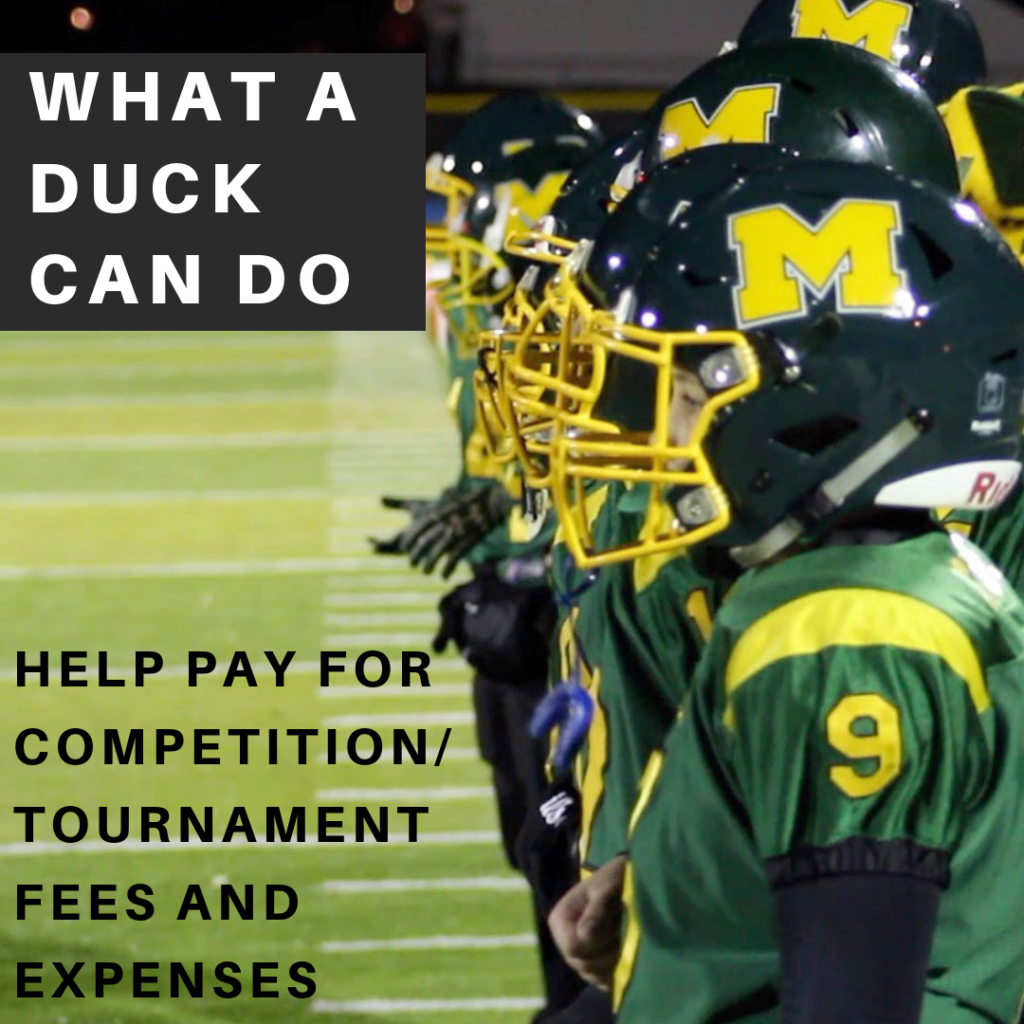
3. The Great Eastern Iowa Duck Race
Ducks Racing: 10,000
Organization: Cedar Rapids Daybreak Rotary
Where: Cedar Rapids, IA
Who They Serve: Various local non-profits including YouthPort at Polk Education Center, Jon Cushing Sunshine Foundation, ESNA Village Network and Legacy for Learning.
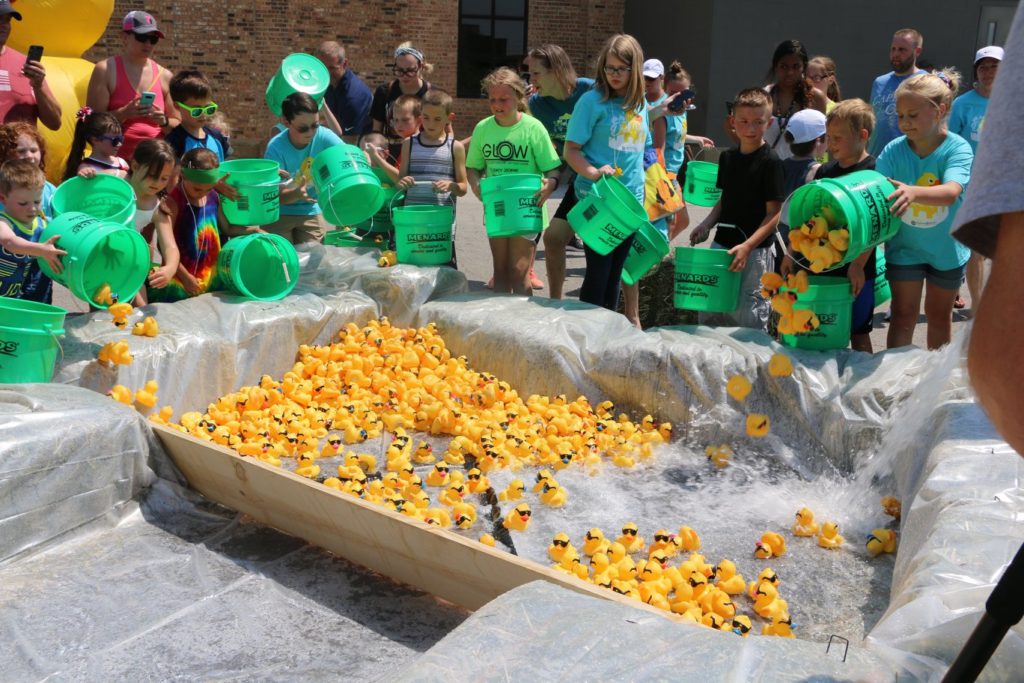
- June 13, 2019
We have numerous reasons why a Derby Duck Race would be great for any nonprofit organization. Here are our top 10 reasons why your nonprofit should do a Derby Duck Race fundraiser.
10. Raise Thousands of Dollars Every Year for Your Organization
Whether your nonprofit organization is large or small, a Derby Duck Race allows your group to raise thousands of dollars for your cause. The longer you race the more opportunity there is to bring awareness to your organization.
9. Bring Your Entire Community Together
There are multiple ways your community can be involved in a Duck Race! Whether sponsoring your event, logistics, adopting ducks, promoting your race on a local media outlet, or just out to enjoy the day and watch the ducks – there is something for EVERYONE to enjoy!
8. Create Unique Sponsorship Opportunities
A Derby Duck Race offers fun sponsorship opportunities. Not only can you offer logo placement on thousands of Adoption Papers, Marketing Collateral and on your Duck Race website, but you can include inflatable duck balloon displays, media mentions, Quacky appearances, kick-off parties, t-shirts, winning duck announcers, and more! When you partner with GAME we help you create the best sponsor proposals and levels that fit your race!
7. Quacky Fun with the Media
A Derby Duck Race provides a perfect opportunity to partner with local media outlets to cover your event and bring awareness to your nonprofit. Our merchandise collateral is a great way to promote your event and get the local news anchors excited about your upcoming event!
6. A Fun Event for the Entire Family
Kids go “quacky” for these ducks which makes a Derby Duck Race a great fundraiser for the entire family to enjoy. These ducks bring out the kid in everyone!
5. Numerous Volunteer Opportunities
A Derby Duck Race provides unlimited volunteer opportunities anywhere from Duck Adoptions, to Duck Tagging, to Duck Cleanup after your race. The possibilities are endless! The best part? Just about anyone at any age can participate as a volunteer. Friends, family, co-workers, neighbors, and kids can all help volunteer at the Duck Race.
4. A Staple Fundraiser in Your Community
We have been partnering with nonprofits since 1988 to help bring a duck race fundraiser to their communities. The Derby Duck Race has made a name for itself in our racers’ communities and has brought awareness to nonprofits and their causes.
- Brevard County, FL – Racing for 20 years
- Gainesville, GA – Racing for 20 years
- Silverdale, WA – Racing for 25 years
- Palmdale, CA – Racing for 13 years
- Port Angeles, WA – Racing for 29 years
- Rapid City, SD – Racing for 29 years
- Santa Cruz, CA – Racing for 21 years
- Greenville, SC – Racing for 14 years
- Cincinnati, OH – Racing for 24 years
- Walla Walla, WA – Racing for 21 years
- Louisville, KY – Racing for 15 years
- Texarkana, TX – Racing for 29 years
- Aspen, CO – Racing for 27 years
3. Duck Race Support From a Team of Professionals
When you partner with GAME not only do you receive Derby Ducks to race but you also receive a training workshop, marketing consulting, sponsorship help, and logistic support. We also provide Adoption Papers, Marketing Collateral, Enhanced Mobile-Friendly Software, Promotional Items, and more! We are here to help guide our racers in the right direction in planning a successful fundraising event.
2. Derby Ducks Can Race on All Types of Race Courses
Our derby ducks race on many different types of raceways including rivers, lakes, water parks, swimming pools, man-made courses, slip-n-slides, canals, and fountains! We’ve even seen an obstacle course! If you don’t have water, no problem. You can do a Duck Pluck and have just as much fun!
1. A Fun Way to Bring Awareness to Your Organization and Cause
A Derby Duck Race puts the FUN into Fundraising! It is a great way to bring awareness about your nonprofit organization and cause. A Duck Race sets you apart from other fundraisers in your area and will have a whole community QUACKING about your organization!
So what are you waiting for?! Contact us today to learn how we can help you race ducks! Email us at racewithus@game-group.com or call 800-779-RACE.
- May 31, 2019
Nonprofit organizations need volunteers more than ever and people want to volunteer. The value of a volunteer per hour is worth $23.56 according to the Independent Sector. We would like to think that all volunteers serve nonprofits out of the goodness of their hearts which is certainly a factor; however, your volunteers have choices about where, when and how they volunteer. Do you know what today’s volunteers want? How can you organize volunteers in a way that maximizes their impact with your organization and makes them want to continue volunteering for your nonprofit and your Derby Duck Race? Here are 10 tips to keep your volunteers motivated and happy!
Be Prepared for Them
Don’t bring a volunteer in until you have everything organized. Make the volunteer’s job description clear from the beginning and if they are volunteering at your office, create a designated area to work. Always state the outcome of the task volunteers are doing which will help your volunteers stay on track.
Offer a Warm Welcome
Show them around and introduce them to your staff and other volunteers. Have the director of your nonprofit stop by and say hello. Show that your organization is warm and friendly. Think about your nonprofit’s culture and work environment and if your nonprofit would be a place you would recommend to friends or family as a good place to work or volunteer.
Provide Training
Although the job may seem easy, take time to explain it. Another volunteer who is experienced can help new volunteers. In addition, be sure that instructions are clearly posted for volunteers and have a sheet they can reference.
Maximize the Skills of your Volunteers
Think of your volunteers as extra staff who are capable of performing complex tasks. Take advantage of their experience and unique skills. You may have volunteers who have marketing, graphic design or writing skills who could assist your organization on all levels, including promoting your Duck Race. Provide leadership opportunities to those volunteers who are willing and have the time to take on more responsibility.
Respect their Time
Everyone has busy lives and is juggling professional and personal day-to-day tasks. Decide up front how much time the job will need and include that information when you publicize your volunteer position. Provide a variety of different options so that your organization can appeal to millennial professionals, a busy soccer mom or the retiree who may have more time.
Appreciate Them
Saying thank you is probably the simplest and easiest thing an organization can do. Creative gestures for saying thanks include: sending a letter of thanks and recognition to the volunteer’s employer or asking those served by your nonprofit to craft a personal gift to give to treasured volunteers. In addition, you can send a thank your card to their home, including a volunteer spotlight in a newsletter, or plan a volunteer appreciation lunch.
Communicate with Them Regularly
Regular communication is motivating for volunteers while the lack of it is one of the main reasons volunteers become dissatisfied. If your organization does not have a volunteer coordinator, assign someone to be the point of contact for your volunteers. Including the volunteer coordinator on your fundraising team is a great idea since volunteers typically are your best donors. Also, respond quickly to any volunteer concerns.
Let Them Know They are Helping to Make the World a Better Place
Let your volunteers know their impact by sharing success stories about your programs. For example, share with them about the new building your nonprofit was able to add to your organization from proceeds from your Derby Duck Race. Update them on how your organization is progressing towards its goals. Give them tours and invite them to presentations your nonprofit is having.
Build a Volunteer Community
Host a barbeque or a volunteer lunch before starting a new project so volunteers can get to know each other. Volunteering is a great way for many people to socialize and make new friends, so if you think a couple of volunteers would get along well, assign them to do a particular job together. Furthermore, remember that younger volunteers enjoy volunteering as a group, especially with people from their work.
Help Them Learn Something New
Finally, volunteers want to learn new skills and are likely to have a healthy curiosity to try new things. Volunteering also allows people to try out a new career without making a long term commitment. Turning a volunteer job into a mini educational experience will be highly valued by volunteers and may result in some great referrals as your volunteers tell others about their experience. Your volunteers may even become loyal donors in the process.
A volunteer’s value is impossible to fully calculate. With these helpful tips, your nonprofit will be in the best position to recruit and retain volunteers to retain this priceless resource. What types of tips do you have to keep your volunteers motivated?
- May 24, 2019
Do you know your donor demographics? What is the most common age range of your donors? What communication styles do they prefer? How do they show support for nonprofit organizations?
Recognizing and understanding the behavioral trends of donors in different generational groups has always been a challenge for nonprofit organizations. The more you know about your donors, the greater you can get your fundraising messages to stand out and drive engagement. Here are some statistics for each generation that can help you better target your various demographics.
Generation Z (Born 1996 – Present)
- Often referred to as “Philanthroteens,” Generation Z is motivated to support nonprofits and drive social impact.
- Generation Z has already been exposed to issues like economic instability, polarizing social controversies, and global weather changes. As a result, Generation Z is eager to make this world a better place. 60% of Generation Z wants their workplace to do social good.
- Generation Z trusts social media influencers over celebrities and athletes to endorse products, causes, and brands.
- This generation wants authenticity and transparency from companies asking for donations. It is important to be authentic when marketing your organization’s cause.
- Generation Z is most likely to donate to causes related to the planet and environment.
Generation Y or Millennials (Born 1981 – 1995)
- 86% of Millennials donate to charity and 40% of them are enrolled in a monthly giving program.
- Millennials are tech-savvy, well informed and results driven. They respond best to mobile-friendly and online platforms.
- Millennials spend an average of 18 hours a day consuming general media with a total of 5.4 hours per day on social media. They are more likely to donate to a nonprofit directly from a social networking site or through a mobile platform.
- Trust is key – 60% of Millennials say that their decision to donate to an organization greatly depends on whether they can see their donation’s impact. They want to know who will benefit from their donation.
- Millennials are most likely to donate to causes related to human rights and international development, child development, and victims of crime or abuse.
Generation X (Born 1965 – 1980)
- Generation X represents about 20% of the total population and almost 50% of them are enrolled in a monthly giving program.
- Generation X has adapted well to the rise of mobile and social media and is more likely to own a tablet than any other generation.
- This generation needs a convenient, easy way to give online as 40% of them donate through an organization’s website.
- Keep your social media up to par – 60% of Generation X is inspired to donate to charity by a message or image they saw on social media.
- Generation X is mostly like to donate to causes related to health services, animal rights and welfare, and environmental protection.
Baby Boomers (Born 1946 – 1964)
- Baby Boomers represent 43% of total giving made by individuals.
- A total of 21% of Baby Boomers give to organizations on a monthly basis. They are dependable donors and are usually generous.
- Baby Boomers respond well to digital communications and direct mail. They have adopted mobile and social media at a rapid rate. 71% use a social networking site daily with Facebook being the most popular.
- A total of 36% of Baby Boomers over the age of 50 use a smartphone and 32% own a tablet.
- Baby Boomers are most likely to donate to causes related to religious and spiritual efforts and first responder organizations.
The Silent Generation (Born 1928 – 1945)
- This group relies the most on direct mail to support causes they care about. They will continue to respond to print mail and phone calls.
- Don’t rule them out from the digital world – 35% of the Silent Generation has made an online donation in the last year.
- This generation has a rapidly growing social media presence. Seniors account for 11% of all Facebook users combined.
- This is the most important group in terms of giving their assets instead of cash.
- The Silent Generation is most likely to donate to causes related to emergency relief, troops and veterans, the arts, and political campaigns.
Understanding how donors view your organization and their behavioral trends will provide key insights into how you can better engage donors for your Derby Duck Race. Continue watching our blog for more insights on fundraising trends, nonprofit news, and tips about promoting your own event.
Sources: Mgive, Tech Impact, Donation Pay, Blackbaud, Fundraising Counsel, Classy
- May 17, 2019
The goal of your Derby Duck Race is not only to raise funds for your nonprofit organization but to use it as another platform to bring awareness about your organization’s cause. Your story will have an impact on how many duck adoptions you receive, whether they are done online through your Equack website or in person at adoption events. It may seem easy to provide a brief sentence of what your organization does and link to your home website to “learn more”, but the power of your story should be highlighted on your website, adoption papers and marketing collateral. Here are some storytelling tips to help make your story most impactful when seeking duck adoptions.
- Keep your story short. The average human has an attention span of fewer than 8 seconds. Provide the most engaging and informative information first. If readers and listeners want to learn more, then that is the opportunity to link to your home website in the closing clause. i.e. “To learn more about our cause visit us at www.yourorganization.com”.
- Personalize your story. Many times stories fall into the trap of speaking about the organization and not about the actual cause and those affected by it. Have someone who is benefitting from the work that you do tell their story. Humanizing the story will go a long way.
- Don’t be afraid to add a little emotion to it. This will draw readers and listeners in and they will remember how you made them feel about it and ultimately remember what your cause is. No matter what, authenticity is key. Show people something they can relate to.
- Make it visual. A block of text can often be overlooked so videos are a great way to personalize your story if you have the capabilities. If you don’t have a video, photos can be just as powerful. If you are using text, be creative and play with fonts and colors on certain important words to make your message stand out.
- Ask your team why they joined your organization. If you sit down with individual staff members and ask why they wanted to work or volunteer for your organization, they will provide some insight that will help with the brainstorming of what to say in your message as well as personalize it. This is a great way to break through the “writer’s block.”
The best part about storytelling is that no two stories are the same. If you have any stories to share or ideas of how to make a story impactful, please share with us on our Facebook!
- May 10, 2019
This Saturday, 65,000 ducks are taking over Florida and Georgia to raise money for youth in their communities. Keep scrolling to see who’s racing in Bradenton, Cartersville and Gainesville and the QUACK-tastic causes their racing for!
1. Lucky Ducky Race For Pace
Ducks Racing: 25,000
Organization: Pace Center For Girls
Where: Bradenton, FL
Who They Serve: Help teen girls achieve their academic goals, develop real-world skills and prepare for the promise of their future.
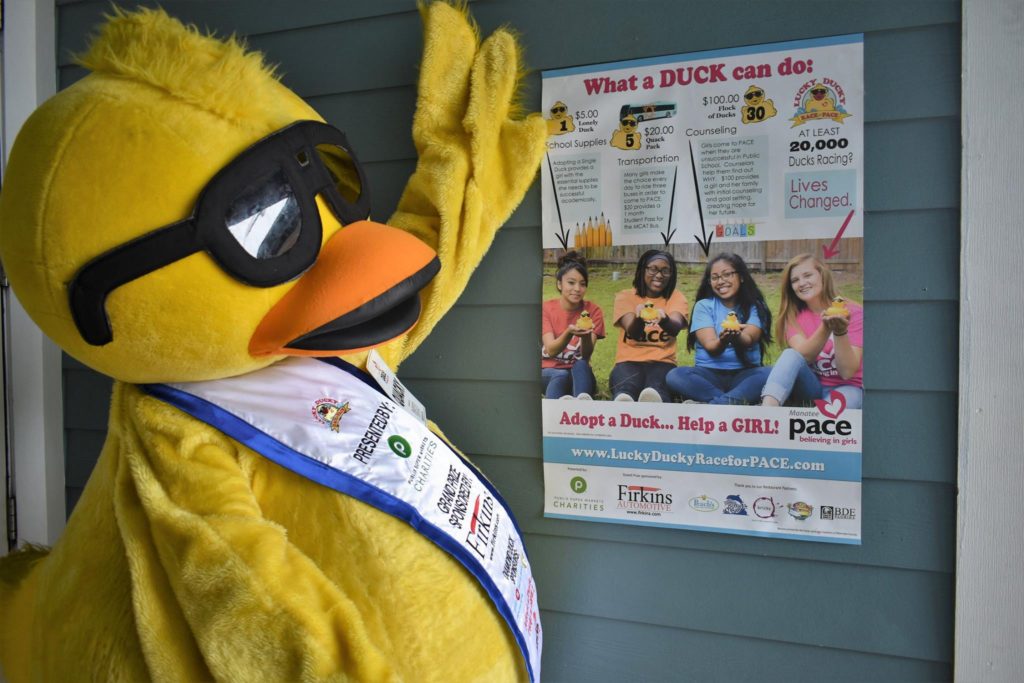
2. The Duck Derby
Ducks Racing: 20,000
Organization: Advocates For Children
Where: Cartersville, GA
Who They Serve: Provides services to children and families who have been the victims of abuse and neglect.

3. Rubber Duck Derby
Ducks Racing: 20,000
Organization: Boys & Girls Club of Lanier
Where: Gainesville, GA
Who They Serve: Provide after-school and summer programs for youth focusing on Academic Success, Healthy Lifestyles, and Good Character & Citizenship.
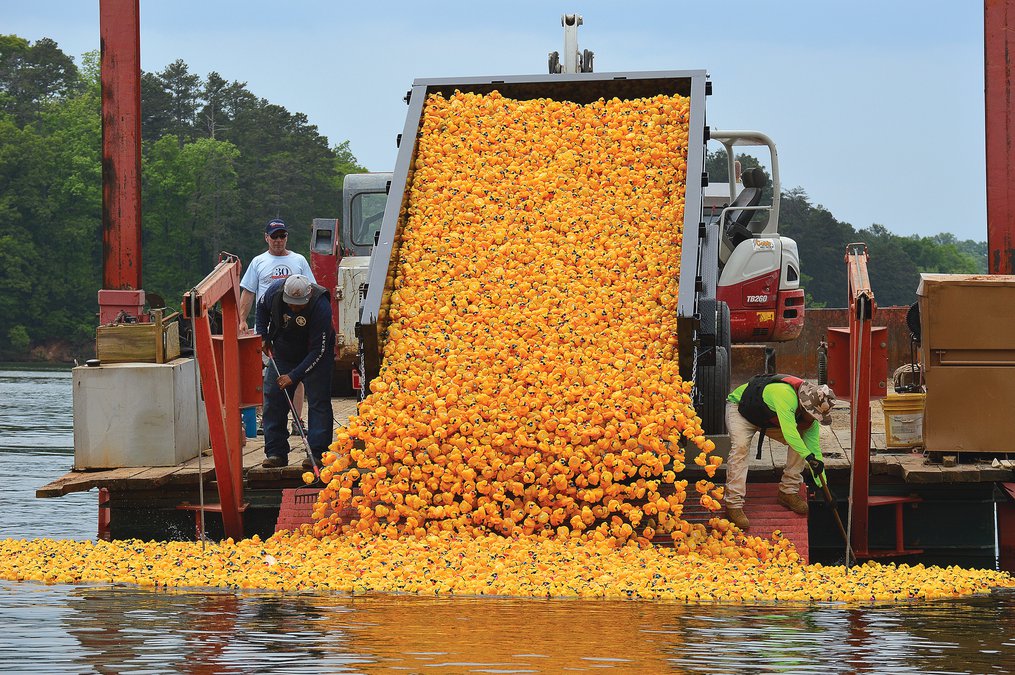
- May 8, 2019
How to Leverage Your Fundraising Expenses Through Sponsorships and In-Kind Donations
Our blog this week discusses some tips on how nonprofits can put as much money as possible back into their organizations to cover fundraising event costs. An event like a Derby Duck Race can be time-consuming and the last thing a nonprofit wants is for all the money raised to go into covering costs and expenses.
The idea is to leverage the expenses associated with hosting your Derby Duck Race. To do this, the best way is to secure as many sponsorships and in-kind donations as possible. Partnerships with sponsors and local business not only benefits your organization but also the donator’s company as well.
Sponsors can underwrite your entire fundraising event or a major portion of it, all while creating enormous exposure for themselves. The key to getting a major presenting sponsor is to find ways to get them as much exposure as possible. Exposure could include press releases, email blasts, signage, logos on marketing collateral, and your Equack website. Another way is to create a new event and have one company be the sole sponsor for it. This not only creates buzz for your fundraising event and creates maximum exposure for your sponsor, but helps leverage your expenses.
Another way to leverage expenses at a fundraising event is by creating relationships with business owners in your community. Securing in-kind sponsorships will help with expenses. In-kind sponsorships are payments of goods or services rather than cash donations for your event. If you run a fundraiser that is tied with an event, getting food or prizes donated allows you to put more money back into your nonprofit. After all, the idea of working hard on a fundraising event is to raise money for a good cause, not to pay for expenses.
Be sure to check out our blog post How to Secure Sponsorships for your Derby Duck Race for more information on securing sponsorships.
- May 3, 2019
- Recent Posts
Recent Posts
